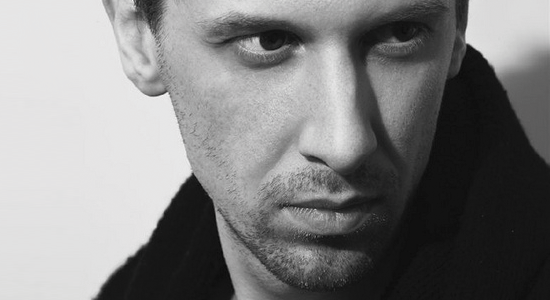Marijus Adomaitis, un nome che ai più risulterà sconosciuto, anche se forse ricordare il suo nome d’arte non cambierà molto le cose, per ora. Mario Basanov è un producer lituano dotato di particolare talento, un talento che va al di là del riuscire a generare buona musica, un talento che riesce a dare “sentimento” ad ogni sua traccia. Probabilmente non sono riuscito a spiegarmi, ma un esempio potrebbe essermi d’aiuto. Vi ricordate di “Lonely Days”, una delle sue ultime uscite? Ne abbiamo già parlato su Soundwall, se non ve la ricordate vi consiglio di andarvela a risentire e forse a quel punto mi capirete. Quella è la voce di Mario Basanov. Incredibile, vero? Ecco, questo è solo uno degli aspetti che rendono Mario Basanov un artista da tenere sott’occhio, cosa che col passare del tempo non risulterà difficile. Artista che per ora è tutto da scoprire, quindi cosa meglio di una chiacchierata per conoscerci meglio?
Ciao Mario, benvenuto su Soundwall!
Si vede che hai talento e il tuo sound sta conquistando molte persone, come nasce la tua musica?
Prima di cominciare a comporre una nuova traccia ho delle visioni e vedo colori. E’ estremamente difficile spiegare questa sensazione che viene dall’interno. Ho una dipendenza dalla musica e tutto quello che viene con lei è strettamente connesso con il mio spirito.
I tuoi sono ritmi lenti, balearici e molto deep, suoni che si mischiano perfettamente con la tua voce. Come nasce l’idea di inserire un tuo vocal sulle tue tracce?
Ho suonato il fagotto (uno strumento a fiato) sin da quando ero bambino, è per questo che ho tutte le basi. La tecnica utilizzata per produrre suoni con gli strumenti a fiato è simile alla tecnica utilizzata dai cantanti. Si utilizzano gli stessi gruppi muscolari, per esempio il diaframma. Durante la mia adolescenza ascoltavo la musica dalla “Motown”: Stevie Wonder, Donny Hathaway, Marvin Gray, Michael Jackson eccetera. Mi incuriosiva il fatto di registrare la mia voce su una mia traccia. Non è stata la prima volta, c’è sempre la mia voce nei cori che utilizzo per produrre. Ma era la prima volta che lo facevo da solista.
Parlando di “Lonely Days”, puoi parlarci del tuo ultimo EP e magari svelarci qualcosa riguardo alla collaborazione con il misterioso progetto svedese “Drop Out Orchestra”?
Questo singolo è il più variopinto. I remix son tutti fantastici e molto diversi. Ho immaginato di registrare una traccia in stile Disco, quindi ho usato la tecnica del falsetto. La mia più grande sfida sarebbe stata cantare sulla traccia di qualcun altro, invece di farci un remix. Sono affascinato dal groove e dalla vitalità del sound dei “Drop Out Orchestra”. Penso sia un buon Ep. Li hai definiti misteriosi, quindi anche la nostra collaborazione deve essere misteriosa.
La tua musica si adatta perfettamente alla tendenza del momento, un ritorno ai suoni house un po’ più puri, che si allontanano un po’ dalla corrente più minimale che era predominante qualche anno fa. Cosa ne pensi?
Io utilizzo questo modo di dire: “non essere alla moda, sii elegante”. E’ questo il motivo per cui non sempre pongo attenzione alle tendenze nel mondo della musica dance, perchè cambiano ogni settimana. Gradisco molto il sound disco. Ora come ora sto cercando di riportare il suono a quello retro dell’house old school. C’è stato un periodo in cui ho ammirato i suoni minimal e tech, ma ora mi sembrano essere sterili. Non hanno vitalità e sensibilità.
Sei ancora molto giovane ma hai già una buona carriera produttiva alle spalle, cosa è per te fonte di ispirazione?
Ho iniziato a produrre tredici anni fa. Creai diversi album stilisticamente diversi: house, R&B, broken beat, anche hip hop. Come artista ho iniziato la mia carriera nel 2008. In quegli anni ho iniziato a lavorare con Vidis, creammo una traccia chiamata “Test”, la quale fu rilasciata su “Defected Records” nella compilation di Gilles Peterson. Quest’anno è stato quello di maggior successo, più di dieci vinili e un sacco di produzioni digitali sono stati rilasciati. La mia più grande ispirazione è il fagotto, il mio strumento. L’ambiente in cui vivo mi aiuta a generare il sapore nella musica. Non è solo un’ispirazione, ma è diventato un modo di vivere.
Sei ancora molto legato alla scena lituana anche se la tua fama si sta allargando al resto dell’Europa. Cosa sai dirci della scena musicale lituana, magari facendo anche un confronto rispetto al resto delle tendenze musicali presenti in Europa.
La scena elettronica è abbastanza attiva in Lituania. Abbiamo progetti Trance, Progressive e House. Anche le scene Break e Dub Step sono attive. E’ difficile soddisfare le nostre aspettative perchè la situazione dei club in Lituania è molto delicata. Il fabbisogno di musica da club è più grande in Europa e ci sono più opportunità di essere ascoltati.
Parlando della tua crescita musicale cosa prevedi per il tuo futuro e su cosa stai orientando principalmente i tuoi sforzi ora?
Voglio utilizzare tutto ciò che Dio mi ha concesso. Ho delle abilità e quindi voglio creare. Voglio esprimere i miei pensieri attraverso la musica. Durante le performance riesco a rappresentare il mio amore e la mia attrazione verso la musica. Oltre a questo voglio aggiornale il mio studio prendendo un nuovo sintetizzatore o qualche nuovo equipaggiamento per la produzione.
Grazie per il tempo concessoci. Buona fortuna.
English version:
Marijus Adomaitis, a name that maybe doesn’t mean anything for so many people and remember his artist name may be not so helpful, for now. Mario Basanov is a Lithuanian producer with an extraordinary talent, a talent that is not limited to the creation of good music, but is a talent that has the ability to give feelings at every single track. Maybe i was not clear, but an example could be a good help. Do you remember “Lonely Days”, one of his last release? We have just talked about here on Soundwall and if you don’t remember that i suggest you to check it out. When you are hearing the voice, his voice, (yes, it is Mario’s voice) maybe you can understand my words. Incredible, isn’t it? This is only one of the peculiarity of Mario Basanov, an artist that deserve to be putted under the spotlight, a status that will come naturally with the passing of time. By now he is an need-to-be-discovered artist, so what is better than a chat with him?
Hi Mario, welcome on Soundwall
You are gifted and your sound is gaining so many people, how your music born?
Before I start composing a new song or track I see visions and colours. It’s extremely hard to explain this feeling, which comes from the inside. I’m addicted to music and everything that comes with my music has a strong connection with my soul.
Your rhythms are slow, pretty Balearic and deep, sounds that are matching perfectly with your voice. How was born the idea to put your voice on your tracks?
I have been playing bassoon (wind wood instrument) since my chilhdood that is why I know all the basics. The technique of getting the sound with wind instruments is similar to the technique used by singers. The same muscle groups being used for example diaphragm. During my adolesscense periods I used to listen to “motown” music: Stevie Wonder, Donny Hathaway, Marvin Gray, Michael Jackson and etc. I was curious to record my voice on my own track. It was not the first time for me, because I always use my voice for back vocals of singers witch I produce. But it was the first time as the solo vocalist.
Talking about “Lonely Days”,Can you tell us something more your last release and maybe something about the collaboration with the mysterious Swedish project “Drop Out Orchestra”?
This single is the most colorful. All remixes are fantastic and very different. I had a vision to record a track in disco style; therefore I used falsetto technique. The biggest challenge for me would be to sing on someone else’s track instead of making a remix.
I am fascinated about the groove and vitality of sound of “Drop Out Orchestra”. I think it is a good EP. Since you called them mystic so our collaboration is also mystic.
Your music is perfect for the tendencies of the time, i’m talking about the return of the pure house sound, a flow that is so distant from the minimal sound that was predominant some years ago. What do you think about?
I use a saying “don’t be fashionable, be stylish”. That is why I don’t always pay attention to dance music fashion, because it changes every week. I fancy the sound of disco. Right now I am trying to bring the sound to the old school house, but I don’t want to spend too much time with old school house retro sounds. There was a time then I admired minimal and tech styles, but now it seems to be nude. There is no vitality or sensitivity.
You are so young but you have a good production career on your back, so who or what inspires you?
I started to produce music 13 years ago. I have created a lot of different style albums: house, R&B, broken beat, even Hip-Hop. As an artist I started my career in 2008. At that year I started to work with Vidis. We created a track called “Test” witch was released on “Defected records” in Gilles Peterson compilation. This year is the most successful for me so far: more than 10 vinyls and loads of digital production have been released.
My biggest inspiration is my instrument bassoon. The environment I had been living in helped me to build up my taste in music. It wasn’t only an inspiration, but it also became a way of living.
You are almost linked at the Lithuanian scene, but your fame is growing around the rest of Europe. What can you tell us about the Lithuanian music scene? Maybe cane you make a comparison between the Lithuanian music tendencies and the tendencies that are dominants in Europe?
The electronic scene is quite active in Lithuania. We have trance, progressive, and house projects. The break and dub step scenes are active as well. It is hard to satisfy our expectations because the situation of Lithuanian nightclubs is delicate. The need of club music is bigger in Europe and there are more opportunities to be heard.
Talking about your musical grow, what you expect from the future and where are you driving all your forces at the moment?
I want to use everything given me by God. I have knack so I want to create. I want to express my thoughts via music. During the performance I am able to represent my love and attraction to music. In addition, I want to update my studio by getting a new synthesizer or some equipment for producing.
Thanks for the time that you spent with us. Good luck.




